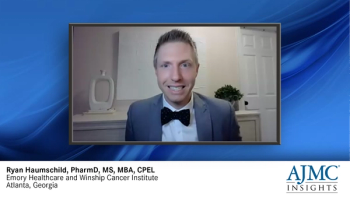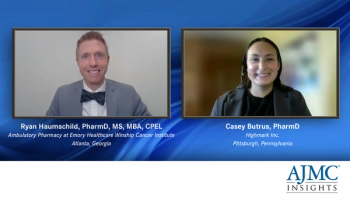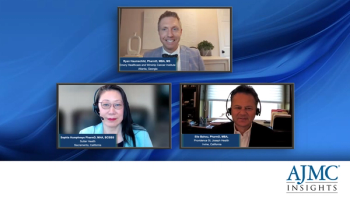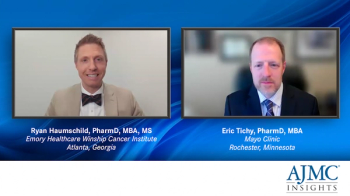
A panelist discusses how biosimilar adoption faces multiple barriers despite proven cost benefits, exploring strategies for improving uptake, best practices for interchangeability, experiences with adalimumab switching, and future optimization opportunities in healthcare systems.






